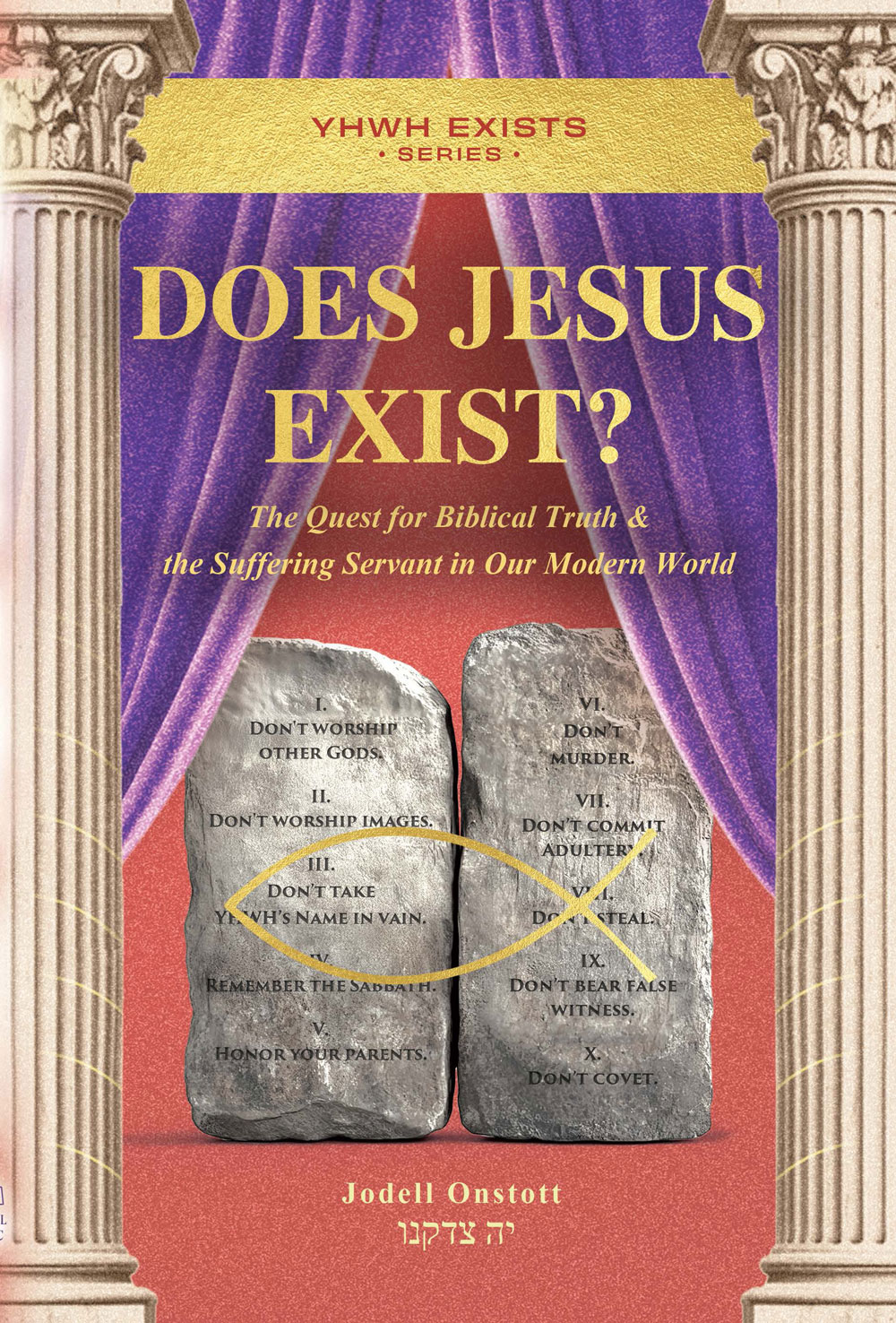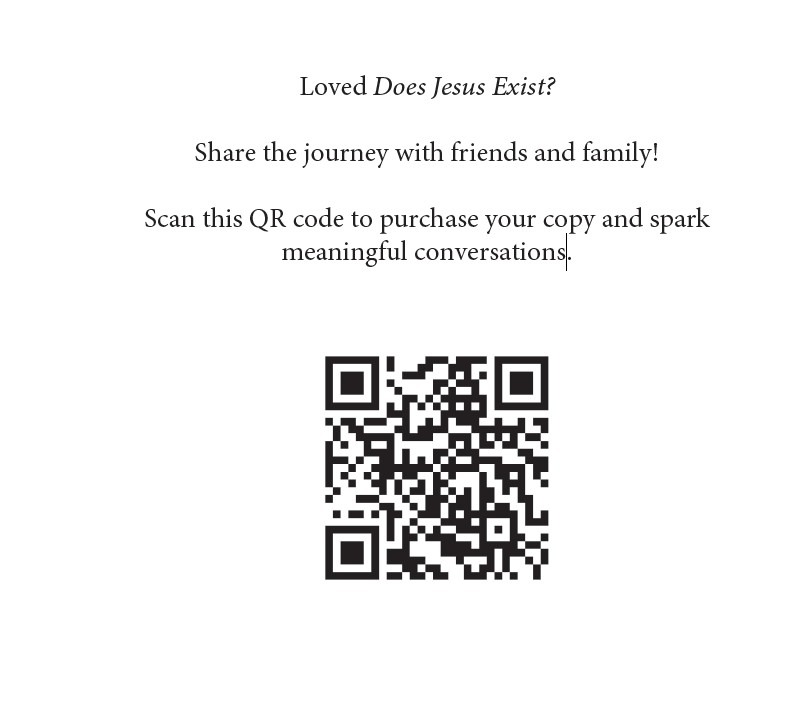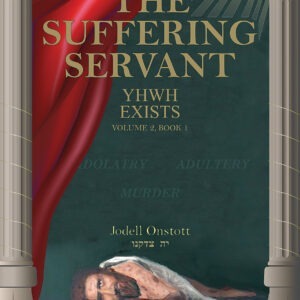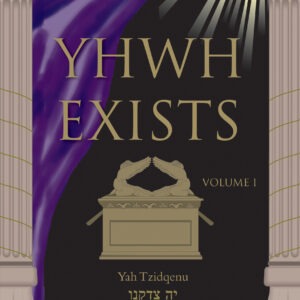$9.99
Only available via Amazon. Please follow the below link to purchase. Thank you.
Is the Jesus of the New Testament a continuation of divine truth—or a contradiction to it? The Quest for Biblical Truth & the Suffering Servant in Our Modern World.
Out of stock
Description
Only available via Amazon. Please follow the below link to purchase. Thank you.
The Quest for Biblical Truth & the Suffering Servant in Our Modern World
Is the Jesus of the New Testament a continuation of divine truth—or a contradiction to it?
Modern Christianity teaches that Jesus came to fulfill and replace the laws of the Old Testament, ushering in a new covenant based on grace and faith. But does this claim withstand historical, archaeological, and biblical scrutiny? Further, what if the New Testament doesn’t replace divine law but affirms it?
In Does Jesus Exist?, biblical scholar Jodell Onstott, follows the same rigorous, evidence-based approach that made her book YHWH Exists a seminal work. Breaking open Jesus’ role in history, Onstott examines Divine Law, studies the irreconcilable differences between the Old and New Testaments, and reveals a universal formula for recognizing truth—one that has been suppressed, distorted, or ignored for centuries. In this impartial look at Christianity and Judaism, Onstott applies biblical archaeology and historic Christianity to investigate whether Jesus fulfills the role of the Suffering Servant from Isaiah 53.
Author Quotes:
“Sin blinds us to our own transgressions. It prevents us from discerning that suffering does not stem righteousness, but from our departure from it.”
“Indoctrinate your children well, or those who hate your values will.”
“When we abandon the eternal Law of YHWH, we trade the light of divine truth for the shadows of chaos, yet in seeking His name and precepts, we awaken to a healing that can mend the nations and restore the Suffering Servant’s promise of peace.”
“Are we stronger when we look to one man for salvation? Or, are we stronger when each of us chooses to respond to the Divine call to action?”
Quick Quotes: “There is no messiah and you’re it!”
“’What is right for you isn’t right for me,’ has led to no rights for anyone.”
“Peace comes through righteousness and righteousness through adhering to Divine Law.”
Book Quotes:
“Divisions of belief create chaos. We daily witness this chaos increasing. We’ve become accustomed to a stalemated status quo that ignores injustice, oppression, wickedness, and is resigned to just ‘go with the flow’ in our religious beliefs.”
“Consigned to different corners of the ring, brothers who should be standing together, have retreated to opposing corners. Modern Christianity tries to shed its shared history with his Jewish brothers. Judaism, accustomed to being attacked by brothers and foreigners on all sides, has often resorted to isolation to protect his own, rejecting any Christian theological dialog.”
“‘What is right for you isn’t right for me,’ has led to no rights for anyone. We the People have exchanged the meaningful for the expedient. ‘I need it now’ is America’s new norm.”
“Almost 2,000 years have passed since the prophesied destruction of the Second Temple. With the modern wars in Ukraine, attacks on Israel, and immigrant and civilian violence, world peace is a far cry from our present reality. Because these promises have not been fulfilled, people have lost faith, turning against Jesus and against the Jews. Can a fresh investigation reveal a lost path?”
“Why has the Suffering Servant prophecy shaped the beliefs within Christianity and Judaism so differently? Jews see themselves and their history as fulfilling the Servant’s traits, while Christians understand Jesus (Yeshua) to fulfill Isaiah’s Suffering Servant prophecy as the Messiah. Most academic and theological studies remain divided along these lines.”
“Can both Judaism and Christianity be correct at the same time? Do both Jews and Jesus simultaneously fulfill Isaiah’s prophecy? Or does the text exclude one of these entities? … Is Jesus, as the Suffering Servant, simply a specific person who suffered within the broader category of Judah? Since Jesus was a Jew, this question is not as outlandish as it may seem.” (
“Isaiah prophesied that the Suffering Servant will sprinkle and heal many nations (Isa 52:15; 53:5). The Servant’s sprinkling resonates so deeply with people that it fulfills the prophetic vision in a cleansing so thorough that it brings about world peace: ‘Nations will no longer lift up weapons against nations, neither shall they learn war anymore’ (Mic 4:3; Isa 2:4).”
“These factors are the same reasons why unity evades our understanding of the Suffering Servant. … Can an unbiased investigation awaken the earth to eternal peace and healing?”






